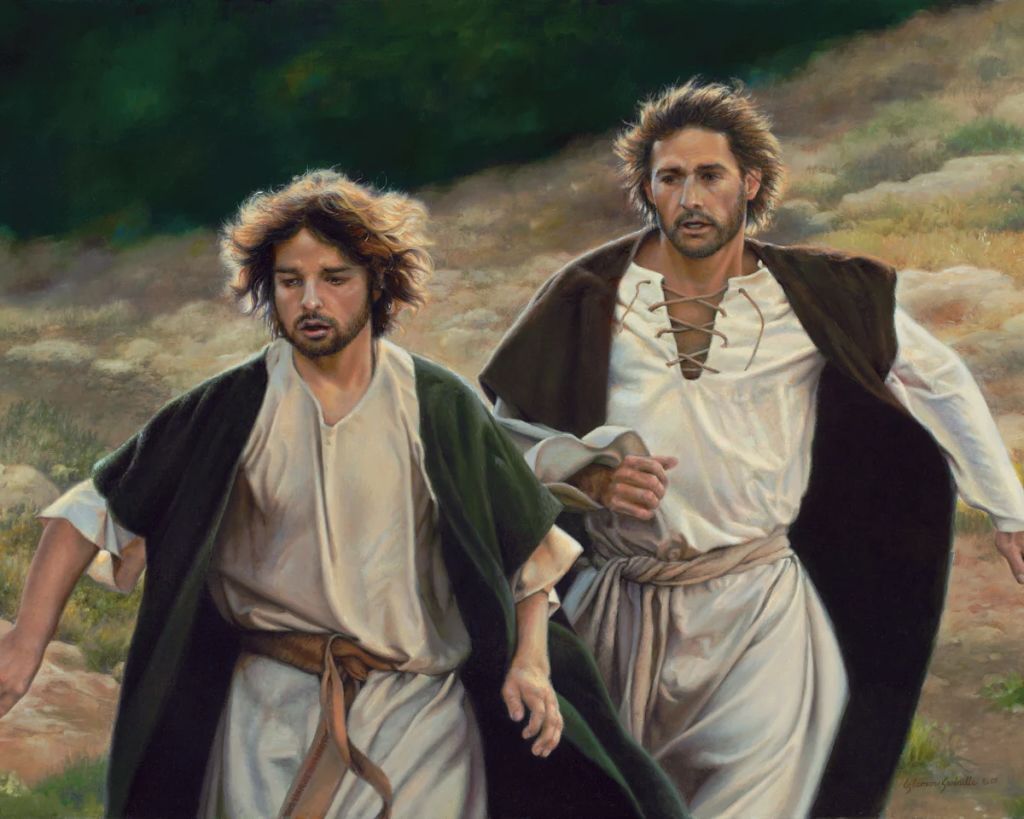You Are No Longer a Sinner
Jon Hagen • April 1, 2018
Your Union with Christ Gives You a New and Better Identity

| Now that Easter's passed, a lot has changed.
Consider that when Christ was crucified, so were you (Rom. 6:5-6). When Jesus died, you did too, and you were also buried with Him (Rom. 6:4-5; Col. 2:12). God brings His children to life with His Son (Eph. 2:5; Col. 2:13), and we are raised up with Jesus (Eph. 2:6; Col.2:12; 3:1). If you're a true believer, this has already happened to you.
So what, functionally, does that change?
It comes as an overwhelming surprise to some Christians in my office when I tell them, for example, that the Bible does not refer to Jesus's converts as sinners. Christians are called many things in the Scriptures, but Sinner is not one of them. Christ's disciples are so united with Christ in His life, death, and resurrection, that in His eyes our very identities have completely transformed.
Across the pages of the Bible, Christians are identified as the "elect" (1 Pt. 1:1), "faithful brothers" (Col. 1:2), "beloved" (1 Jn. 2:7), "children of God" (1 Jn. 3:2), a "holy nation" (1 Pt. 2:9). Most frequently, though, Christians are referred to as "saints" (i.e., those considered holy through their relationship to the sinless Christ). You're either a saint or a sinner; in relation to Jesus, you cannot be both.
Those who've read the Word will quickly cite Paul's famous confession where he refers to himself as the "foremost" or "chief" of sinners (1 Tim. 1:15). Yet taken in context, it's sensible to interpret Paul's confession as a reference to his pre-conversion life ("Even though I was formerly
a blasphemer...") in 1:13.
This is not to say that Christians don't sin. Nothing could be further from the truth. Yet in reference to his life in Christ, Paul says that, "If I am doing the very thing I do not want to do, I am no longer the one doing it but the sin that dwells in me" (Romans 7:20). He differentiates between who he really is in God's eyes (a Saint, his new identity) and what he is yet capable of doing (sinning via his unredeemed flesh).
This is not a small thing, and certainly not some wonky word game. Not only are there significant theological truths going on here, there are also wide-ranging psychological realities happening as well. In addition to having died with Christ (Col. 2:20), Paul goes on to say that Christians have also been raised up with Christ (3:1). The Apostle says we should think about that--a lot. Doing so turns out to be classic positive psychology.
"The things above" are the theological realities of what happened when you were united with Christ in His life, death, and resurrection. Three of those "things" would be that you are no longer known by God as a Sinner, you are now dead to the power of sin, and the guilt of any sin you now commit has already been paid for.
For these truths to begin to effect life change, a person has to think about "these things" frequently enough and long enough to the point that you own it for yourself and believe it to the point that you practice living it out. Here are three initial practices that lead to a changing and maturing life based on your union with Christ:
~ Paul writes to Titus that it's the grace of God (see the verses in paragraph 2 above for such grace) that teaches us to say "No" to sin (Titus 2:11-12). While the presence of sin remains in my flesh, I now have the freedom in temptation to stop in my tracks and say to myself, "I could do that, or say that, or dwell on that, but why? That's not who I am, and it's not consistent with who Christ has made me to be. I'm a Saint now, and I want to live in the joy of my salvation. Plus if I made that choice, where would it lead? In the end, nothing but more pain, grief, and misery."
~ When you do sin, it actually stings worse as a Saint than as one who thinks of himself as a Sinner at his core. The thought process goes something like this: "If I'm a Sinner when I sin, then there's nothing incongruent with what I've just done. In fact, I might as well just keep going down that hole since that's who I am anyway. Why stop now?" On the other hand, when I sin as a Saint, then that's especially painful since it offends the Christ who paid with His life to free me from slavery to that sin.
~The truth of the previous point should then lead to an increasing pace of repentance and restoration after sin has manifested itself. Many Christians I meet are tormented with guilt far longer than they should be after they've sinned. Going around defeated for days and beating up one's self (or beating others up for their sin) is not consistent with Christ's Gospel. True enough, a Christian will feel guilty after sinning. Except that guilt should function as a prompt and not as a punishment. So go ahead, feel the sting and the guilt, but then quickly rehearse that Christ has removed all your guilty stains and washed you clean. Run to the Cross and remind yourself that Jesus has also removed your guilt. Sit on that truth until you feel your heart letting go of it. Then enter again into the joy of His saving grace. |
| Because these things are true, pure, and worthy of praise,
|










